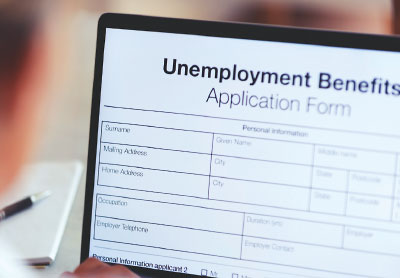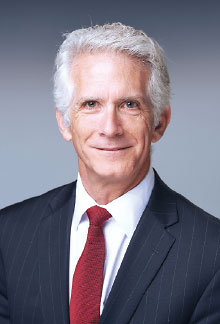Loss of Employer Insurance Leaves Millions With Few Options
Abstract
More than 20 million people will become eligible for Medicaid or a subsidized plan under the Affordable Care Act due to unemployment, but nearly 6 million will have to pay the full cost of their insurance or remain uninsured.

The COVID-19 pandemic and associated public health response has wreaked havoc on the economy. Millions of Americans have lost their jobs, and because health insurance is so often tied to employment in the United States, the number of uninsured individuals is on the rise.
In an analysis published May 13, the Kaiser Family Foundation (KFF) estimated that, after 31 million people filed unemployment claims between March 1 and May 2, 26.8 million people will become uninsured due to the loss of job-based health coverage if they do not sign up for a different health plan.
In total, 21.1 million of those individuals are now eligible for Medicaid or subsidized coverage under the Affordable Care Act (ACA), KFF estimates. Yet 5.7 million are not eligible for either and will have to pay the full cost of their coverage or remain uninsured.
The loss of comprehensive insurance will likely worsen existing fears and anxieties that the pandemic has exposed, said Robert Trestman, M.D., Ph.D., chair of APA’s Council on Healthcare Systems and Financing. Trestman is also the chair of the Department of Psychiatry and Behavioral Medicine at Carilion Clinic and the Virginia Tech Carilion School of Medicine.
Many patients with serious mental illness already qualify for public programs like Medicaid and Medicare, he pointed out. Additionally, the increase in popularity of lower-cost, high-deductible plans has already inhibited people’s access to care, as deductibles as high as $5,000 or more must be met before insurance kicks in.
But those individuals who are losing comprehensive benefits “will be feeling this loss significantly,” Trestman said.

“It is time for us to look at a more coherent approach to making sure that people have access to the care they need and that the clinicians providing the care are incentivized to provide it to the people who need it most,” says Robert Trestman, M.D., Ph.D.
Losing coverage will likely have a compounding effect. “Anxiety worsens virtually every psychiatric condition and predisposes individuals to a host of other challenges,” Trestman said.
Some will almost certainly be denied access to care, he said, and fears that they will be exposed to enormous medical bills will deter them from seeking care in the first place. Those with existing psychiatric illnesses will likely experience a worsening of symptoms and impaired functions, while others may experience psychiatric conditions for the first time. “The consequences are almost certainly going to be increased suffering and death,” Trestman said.
People who lose employer-based insurance are often eligible to continue their coverage for a period by paying the full premium. But, as the KFF analysis pointed out, “Over time, as unemployment benefits end, some may fall into the ‘coverage gap’ that exists in states that have not expanded Medicaid under the ACA.” The “coverage gap” refers to those whose incomes are too high to qualify for Medicaid, but too low to qualify for ACA subsidies.
Of the approximately 5.7 million people who KFF estimates are ineligible for Medicaid or ACA coverage, almost 150,000 people fall into the coverage gap. About 3.7 million people are ineligible due to their family income being above eligibility limits, and 530,000 people do not meet citizenship or immigration requirements. About 1.3 million people will be able to get employer-based insurance through a family member. The KFF analysis also estimates that by January 2021, unemployment benefits may expire for many, leaving 1.9 million people in the coverage gap because their incomes will be too low to qualify for ACA subsidies.
Trestman pointed out that states that have expanded Medicaid may have trouble covering the cost of the newly eligible, as well. “Their tax base has crumbled and certainly won’t be rebuilt for several years at best,” he said. “States may be in a difficult position where they can’t pay for all the services necessary, so they may restrict what they pay for or reduce reimbursement rates.”
Even as individuals who lose employer-based insurance become eligible for other programs, it is unclear how many will actually enroll, KFF’s analysis noted. Before the pandemic, there were already millions of people eligible for Medicaid or ACA subsidies who were uninsured. Eligible people might not know they are eligible or what their coverage options are. Also, they may have trouble navigating the enrollment process or they might consider ACA marketplace coverage unaffordable even if subsidies are available to them. Some states, such as Maine, have launched public campaigns to ensure residents are aware of affordable health care options.
Currently the Trump administration is arguing in a case before the Supreme Court that the ACA should be overturned (See Psychiatric News). Yet, as KFF notes, the current economic downturn is the first during which the ACA will be in place as a safety net. “The ACA has gaps, and for many the coverage may be unaffordable,” the KFF analysts wrote. “However, without it, many more people would likely end up uninsured as the U.S. heads into a recession.”
Trestman recommended psychiatrists work with organizations like APA to effectively advocate for their patients. Reimbursement is an especially important issue right now. “We need to come up with strategies to assist those psychiatrists who are in private practice and have not taken Medicare or Medicaid because the reimbursement is so low,” he said. A growing number of patients are going to rely on Medicaid, and psychiatrists must be fairly reimbursed for the work they do, he said. “We need to see this devastating crisis as an opportunity to transform health care in this country,” he said. “It has been a broken system that we have been patching together, but the patches are breaking apart.” ■
“Eligibility for ACA Health Coverage Following Job Loss” is posted here.



